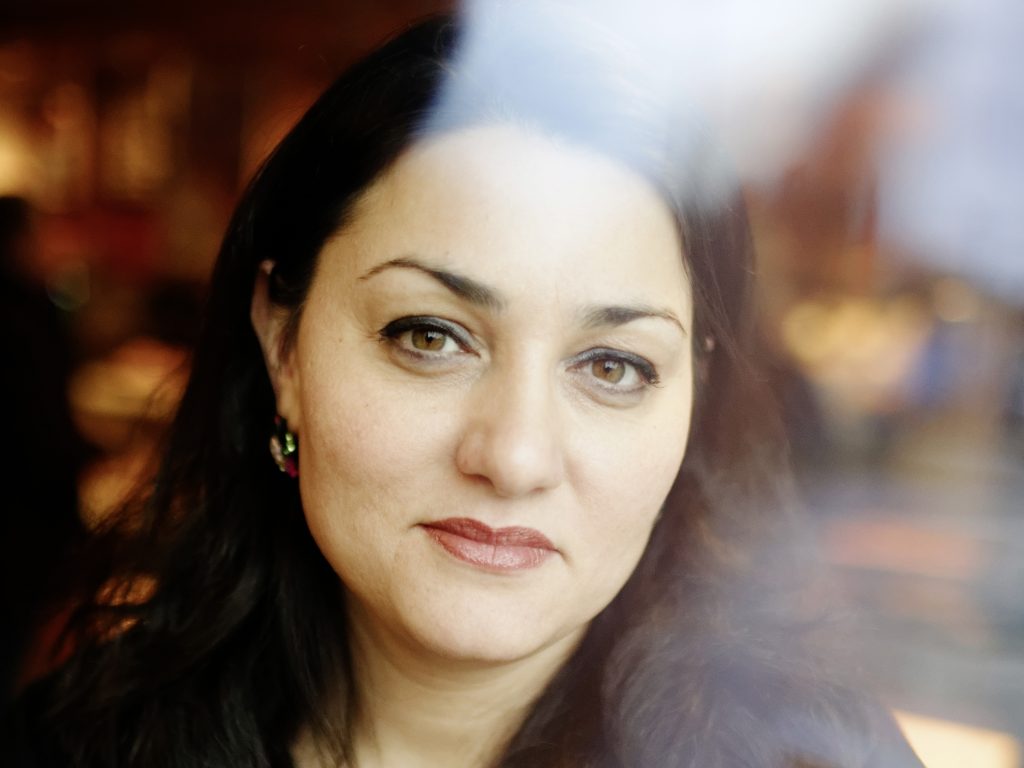Lamya Kaddor is an Islamic religious educator, Islamic scholar and publicist and co-founder of the Liberal-Islamischer Bund e. V. She trained Islamic religious teachers at the University of Münster and is co-editor of the first textbook series for Islamic religious education. She also initiated the first translation of the Koran for children. She has led several prevention programmes for young people (against Islamism, anti-Semitism and Islamophobia), including a project at the University of Duisburg-Essen. Since 2003, Lamya Kaddor has taught Islamic religion at secondary schools in Duisburg. She writes widely acclaimed columns, has received several awards for her work and has been named one of the most influential Muslim women in Europe. She has been a member of the Bundestag for the constituency of Duisburg-Süd since 2021. Kaddor is the domestic policy spokesperson for the Bündnis 90/Die Grünen.
Interview with Jury Member Lamya Kaddor
I do indeed have hope for this world! Even while we are being confronted with extremely different perceptions and perspectives which make our lives seem complicated – particularly during the Corona pandemic. Sometimes I ask myself, “What is the glue holding our society together?” From a political standpoint, our expectations shouldn’t be too high. My belief is that the only way to overcome boundaries – including mental ones – is through art and culture. That is repeatedly shown by the submissions to The Power of the Arts, and it’s something I really draw hope and courage from.
Integration works in societies that aren’t in an extreme or exceptional situation. In societies that are in search of orientation, societies where part of the population is lining up behind those who presume to deliver orientation, it becomes difficult to provide people with a stable proposition that will stand up to the test of time. One of our greatest challenges in these times of uncertainty is to find a reliable stance and offer strength and continuity.
Challenges are coming at shorter and shorter intervals: the climate crisis, euro crisis, refugee crisis, and now Corona. Despite being confronted with these global challenges, we must find a way to coexist in peace. Education, art, and culture are essential to that end, which is why supporting them is a necessity.
Interview with Jury Member Lamya Kaddor
Islamic studies scholar and jury member Lamya Kaddor on her motives for contributing to The Power of the Arts and the need to foster the preservation of social diversity in today’s times.
It is my conviction that integration can also be expressed in art and culture, for it is both versatile and individual – just like art itself. That is the reason I accepted the invitation to participate in the jury.
The ideal society of the future will only be viable if it lives (out) democratic values like gender equality, freedom of expression, artistic liberty, and freedom of religion. Open and free societies will be ready for the future when they identify diversity as an important element for coexistence.
We find ourselves in times where right-wing forces – social and political alike – are growing in strength and propagating a type of homogeneity that is neither real nor desirable.
We live in an open, modern society that is becoming increasingly diverse. At the same time, this society characterized by globalization and digital revolution, also has forces growing in it that oppose such development and advancement, because they feel threatened by it in the widest variety of ways. That is why diversity should represent a central component to a “new us”.
With the arts, access to inclusion and inclusion itself are not associated with any prerequisites other than an artistic interest and the will to fortify solidarity in our society through art.
Solidarity in our society is particularly close to my heart. The arts and engagement in civil society can achieve much more than politics alone.

